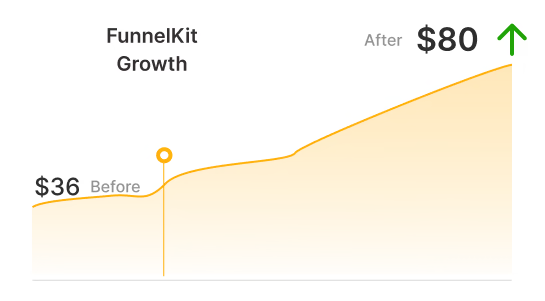
Think about this:
You place 3 different offers on the table for your prospects - $29 | $59 | $149
When 5 people buy the lowest plan, you make about $150. And when just one person buys your highest plan, your sale doubles in a single sweet shot!
That's the power of offering a choice between multiple offers. Yet most of us leave it at one.
Even when it comes to upselling, we create one offer and pin high hopes on it. In this post, I'll show you how to create multiple offers and present them on one page as different options.
You will be surprised by its impact on your own upsell revenue. That's my promise.
But first, let's understand why you should always offer more options than one.
Table of Contents
3 Reasons Why Multiple Options Are Always Better Than a Single Offer
Let's take a look at just some of the reasons why offering a choice works better than having one single offer.
Reason #1: Having No Options Keeps People From Buying
In a behavioral science study, they divided the participants into three different groups and asked them to buy DVD players. One group was given the option to buy a Sony DVD player and the other group, a Philips player.
But to the third group, they offered a choice between Sony and Philips DVD players. Turns out only 9% and 10% people in the first and second group respectively bought the player.
The third group produced astounding results- a staggering 32% of people chose Sony and 34% went with Philips.
The conversions skyrocketed by 650% just because people had more options than one.
This also proves that having no alternatives kept a large majority of people from buying.
Reason #2: Offering Multiple Options Can Increase Profits
The most dominant pricing strategy on the internet today is the three-pronged pricing strategy. You see it everywhere because it works.
Take a look at this example of a three-pronged pricing strategy:
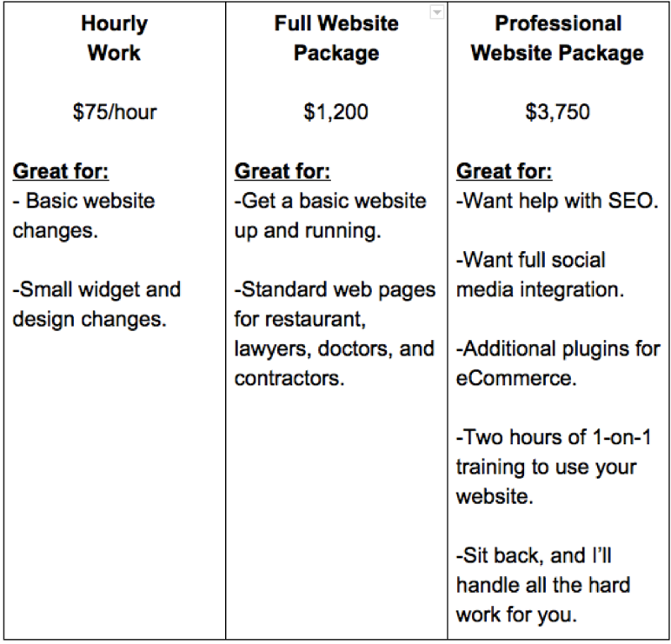
It gives people the option to pay what they can. They can choose to shell out extra money to get more features of a product, more services or just an overall better deal.
And there will always be a percentage of people who will do that if given a choice.
Neville Medhora wrote a story about how he was going to charge one his clients $500 for some SEO work but actually ended bagging a contract worth $5000.
That sure seems like a huge jump but not when you have a pricing plan in the middle of those two at $1000.
Another interesting study that shows the impact of choice on profits:
Russel Brunson of ClickFunnels conducted a conversion case study in which they offered buyers a choice between three lucrative upsell offers.
People could choose between 1 month supply, 3 months and 6 months of supply of the same cream.
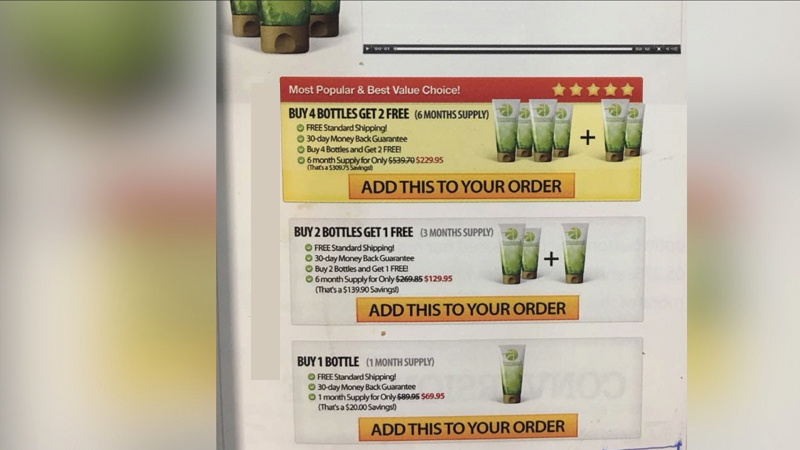
The discount got deeper as the price to pay increased. Interestingly, the $69 single cream pack became the most purchased option even though Russel admits it was a high price to pay for one.
When they removed the first option (6 months supply i.e. buy 4 get 2), their profits went down by 15%.
But when they removed the middle option (3 Month Supply i.e. 2+1), their profits increased by 83%.
This shows - two options converted better than three. And the first option i.e. 6 month of supply was a great decoy.
It established a large price in the minds of the buyers and the other prices in comparison looked smaller.
Reason #3: Price Anchoring Leads People To Believe The Deal Is a Steal
They say if you want to sell a $2000 watch, place it next to a $10,000 watch.
When people have multiple options, they start comparing. They want to know what they're getting, what they're saving and which one of those offers make for a better deal. They tend to compare the prices of different offers to zero in on the best-value deal.
This principle in psychology is called price anchoring. Steve Jobs put it into play when he announced the price of the iPad, here's what he said:
"I am thrilled to announce to you that the iPad pricing starts not at $999, but at just $499.”

Had he said, "We were thinking of pricing it at $399, but we decided to go for $499," it would have felt like a ripoff — even though nothing would have actually changed.
That's price anchoring in flesh and bone.
When the journalists reported about it they said: "Steve Jobs just announced the "very aggressive" price of the...iPad: $499."
Imagine, even though its close competitor, Kindle was priced lower, journalists termed the price as aggressive for the way it was presented.
5 Simple Steps To Present Multiple Upsell Offers On A Single Page
I will now show you how to set up multiple upsell offers and display them on one page. You can present them in either list format (one below the other) or grid format (one next to the other).
Here's how the final output will show up:

If you like to learn by watching, then watch this video to uncover the step by step process:

Let's now look at the step-by-step process to set up multiple offers on a single page.
Step #1: Set Up a Rule To Trigger The Upsell Funnel
UpStroke allows you to pick a rule from the basic and the advanced list. Show the upsell page when the specific product(s) are bought or products from a chosen category are bought and more such rules.
You can even set up multiple rules in conjunction with each other using the 'and' & 'or' functionality.

In this case, we've selected 'Product(s) contains exactly 1 of Liver Tablets'. Next up we'll create the offers.
Step #2: Select The Product(s) To Upsell
You can add multiple products here to show on one single page. But the option to add multiple products is only available when you have the multi-product add-on.
The multi-product add-on is only available on the business plan.
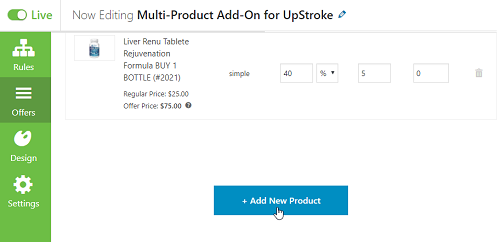
If you're creating volume based offers around the same product - then you'll have to select the same product multiple times.
For example, in this case, we've selected the tablets thrice and each time added a different discount & quantity.
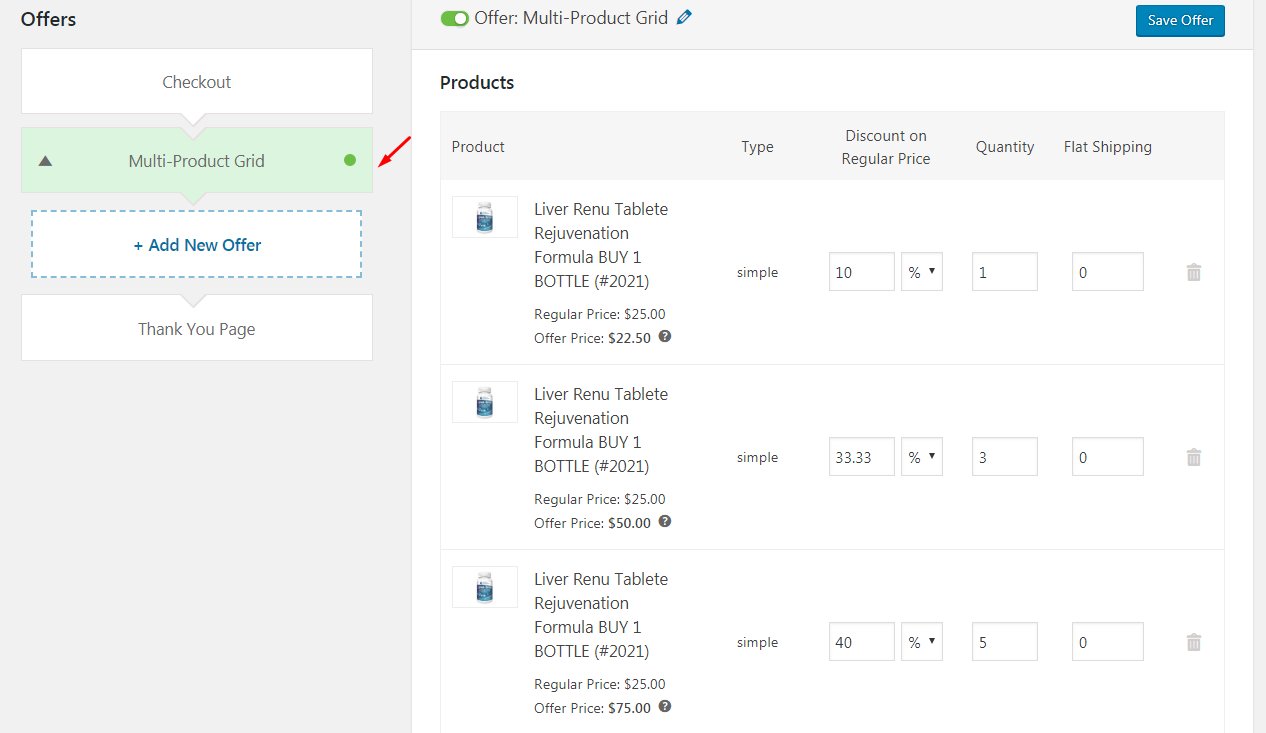
As you can notice, when they buy 1 pack - they save only 10% but when they buy 3, they save 33.33% and finally on buying 5, they save 40%. This is equivalent to saying 'Buy 1 at 10% off' or 'Buy 2 get 1 free' or 'Buy 3 get 2 free'.
Step #3: Pick From Grid & List Format
UpStroke allows you to customize your upsell offer page. Here are the two formats:
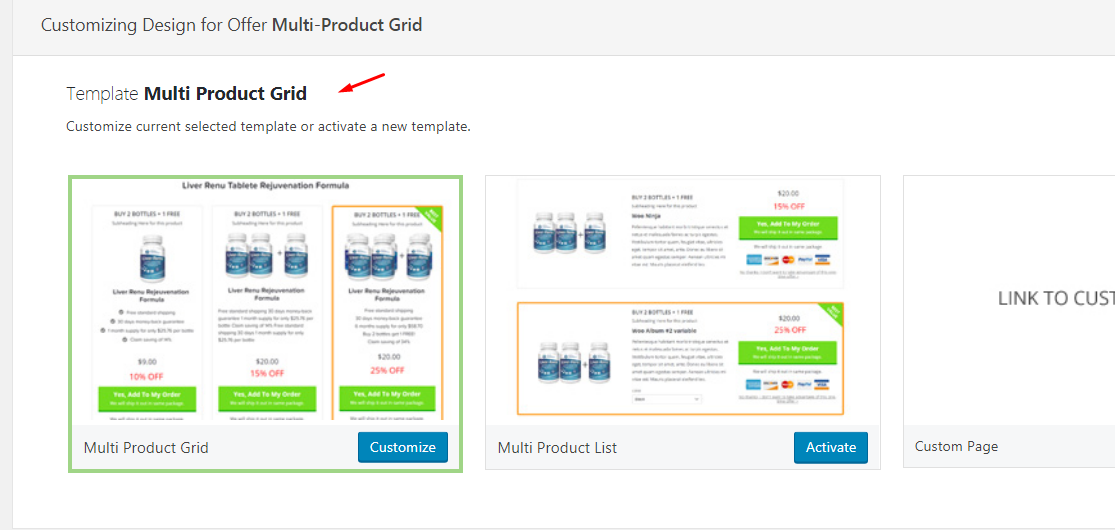
Step #4: Customize Your Upsell Offer Page
Next, create your bullet points to explain each of the offers well. You can highlight details about shipping, the number of months it's last, the savings they'll make.

The idea behind writing details in bullets or list format over paragraph format is that it helps people quickly compare multiple options. The process of making a decision becomes fast and easy.
Another example: You can even have two competing offers instead of three, let's take a look:
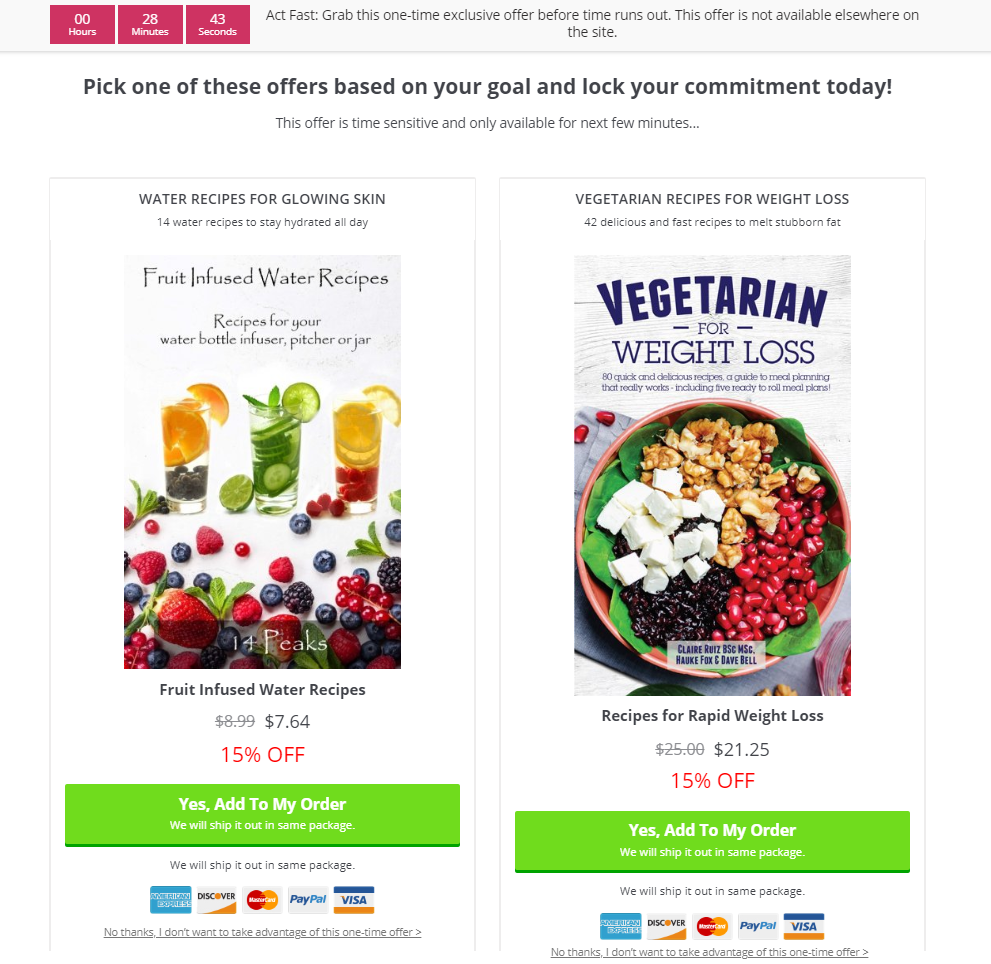
People can pick one of these two offers based on their goal - hydrated & glowing skin or weight loss.
If you want to create two offers and not three, you should select the right layout to present your offers, you can do it from the settings section, take a look:
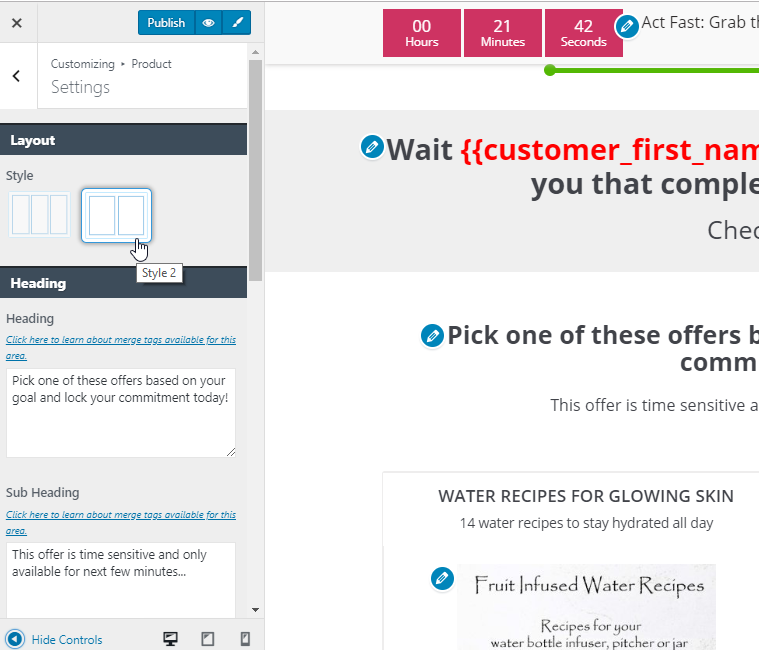
Step #5: Highlight The 'Best Choice' or 'Best Value' Deal
Highlighting your best value deal or most popular choice, helps people take a decision fast. Most people like to go with social proof and believe what everyone else is buying must be good.
So make this psychological principal work in your favor- highlight the popular choice with a badge like this:
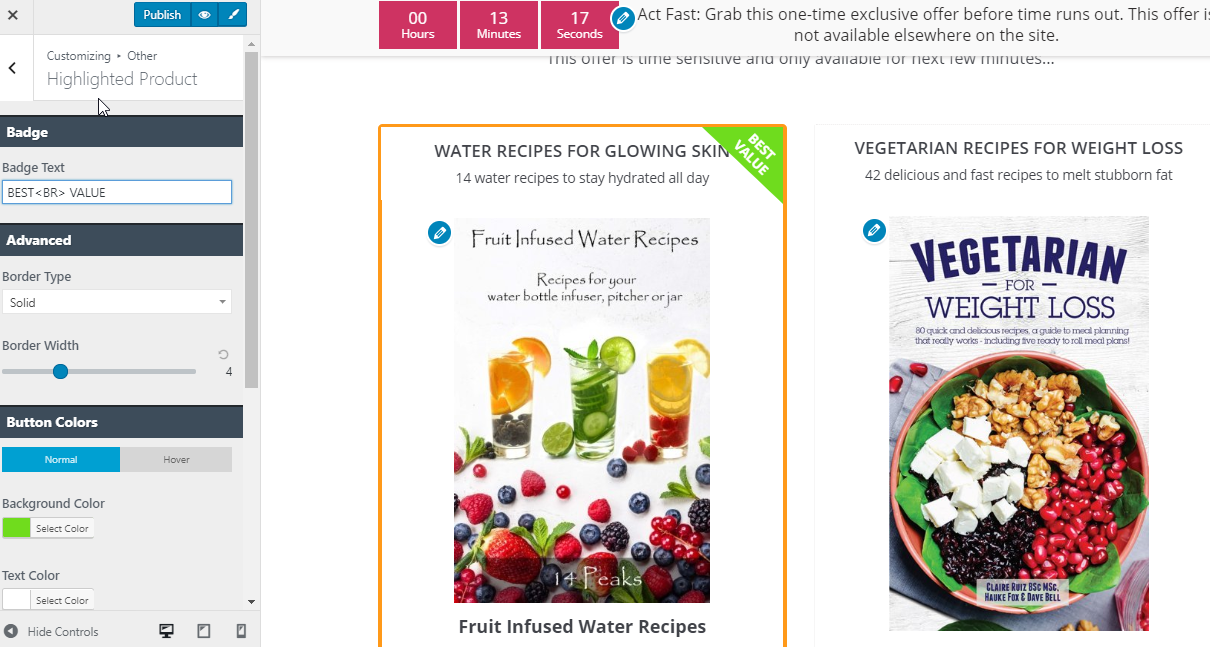
That's it! You're ready to roll.
It's a Wrap & How
As I reach the end of this post - I want you to take a moment to think about the options you had when you were making little decisions in your life.
Maybe the time when your spouse asked you 'movies or stand up comedy?' Or when the guy at the burger shop asked, 'with single cheese or double?'
It's easier to decide when you have a choice- you can quickly reach out to one of the options in the list. Therefore when people say - 'if your product is good enough it should sell on its own', they really aren't taking the buyer's psychology into account.
It's the offer, the narrative you construct around it and the other options you give with it that persuade people to buy. Not just a winning product.
Let me know in the comments about your multiple upsell offer strategy and how you plan to go about it.
Will you offer a choice between two offers or three?
Will you encourage people to buy a greater volume of the same or increase the value as the price of the plan goes up?
Learn more about UpStroke's multi-product add-on here.
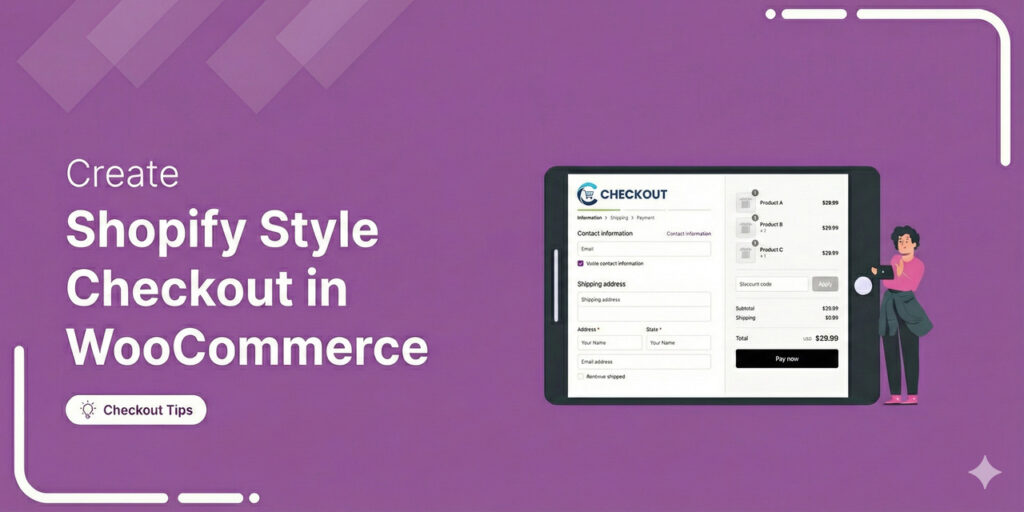
Editorial Team
February 20, 2026A WooCommerce Shopify checkout is a checkout page redesigned to match the clean, multi-step layout that Shopify stores use by default. It replaces the standard WooCommerce checkout with a streamlined...
Editorial Team
February 3, 2026Do you know what’s worse than an abandoned cart? Not knowing why it happened! Your WooCommerce store could be losing sales right now, but you wouldn’t even know it if...
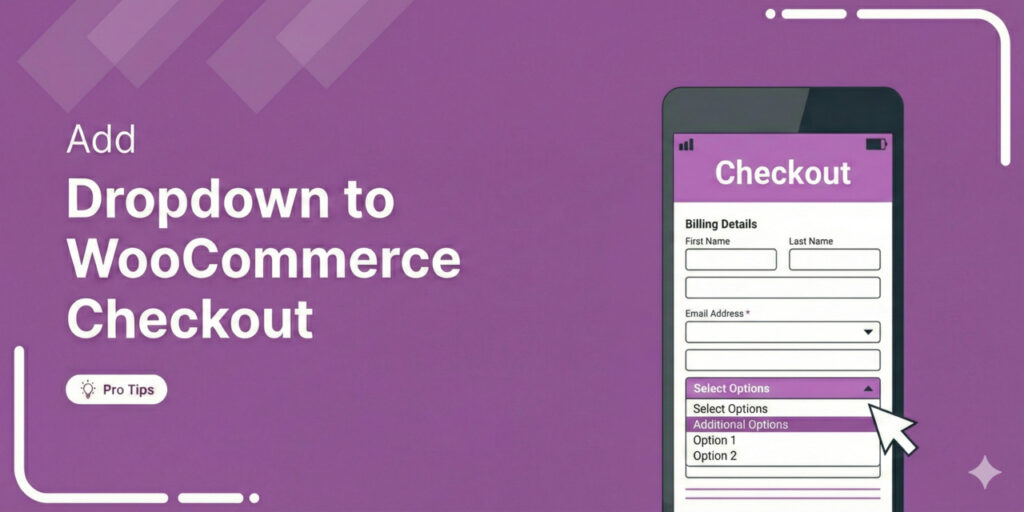
Editorial Team
February 2, 2026Adding a dropdown list to WooCommerce checkout lets you collect structured information from customers instead of relying on messy order notes. Whether you need delivery preferences, gift options, or marketing...

